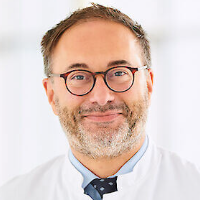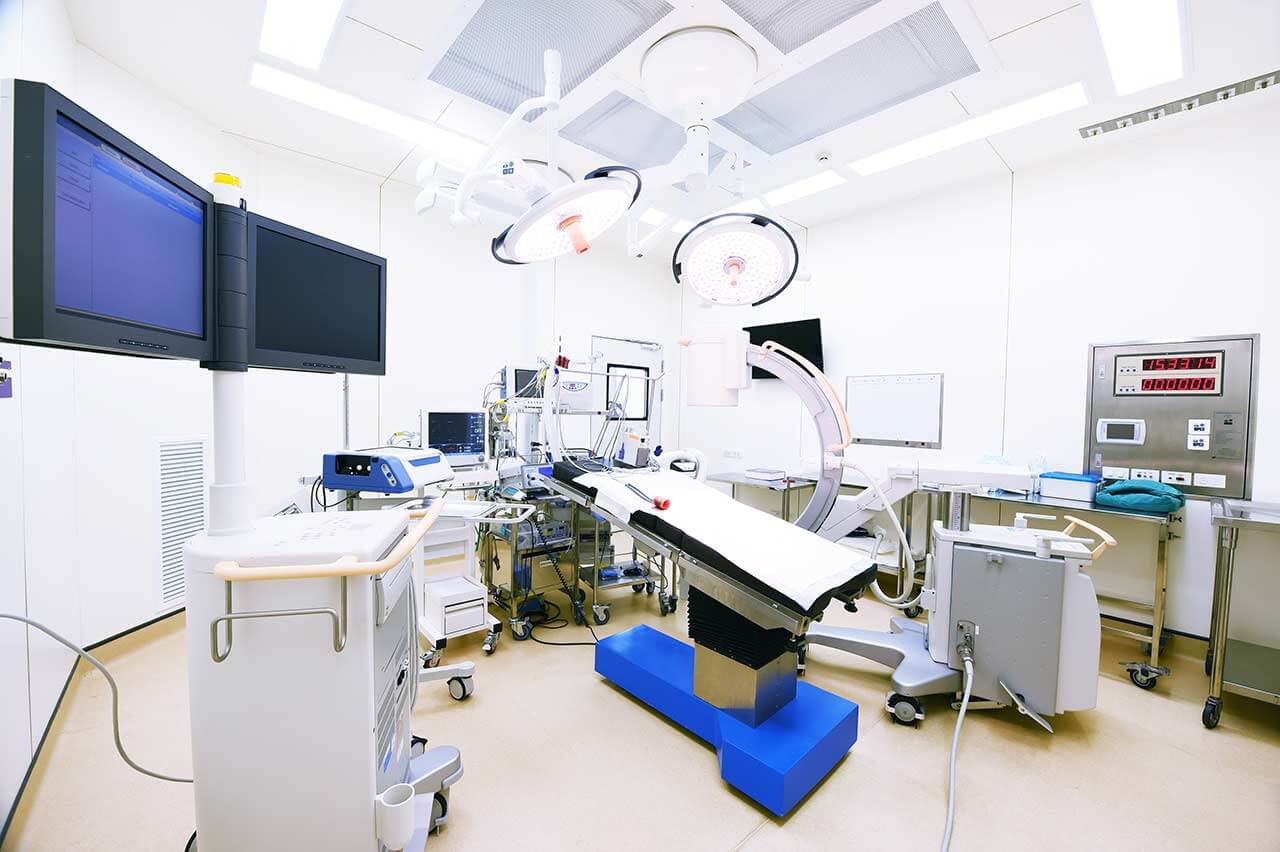
The program includes:
- Initial presentation in the clinic
- clinical history taking
- review of medical records
- physical examination
- laboratory tests:
- complete blood count
- general urine analysis
- biochemical analysis of blood
- determination of the concentration
of antiepileptic drugs in the blood - inflammation indicators (CRP, ESR)
- indicators blood coagulation
- neurological examination
- CT/MRI scan
- neuropsychological tests (on indications):
- ENMG (electroneuromyography)
- EEG (electroencephalography)
- SEPs (somatosensory evoked potentials)
- VEPs (visually evoked potentials)
- BAEP tests (brainstem auditory evoked potential)
- nursing services
- consultation of related specialists
- treatment by chief physician and all leading experts
- explanation of individual treatment plan
Required documents
- Medical records
- EEG (if available)
- MRI/CT scan (if available)
Service
You may also book:
 BookingHealth Price from:
BookingHealth Price from:
About the department
The Department of Adult and Pediatric Epileptology at the University Hospital Bonn offers the full range of diagnostics and treatment for adults and children with epilepsy and other types of convulsive disorders. Special attention is paid to the surgical treatment of epilepsy. Together with the Department of Neurosurgery, the department forms one of the world's largest Centers for Epilepsy Surgery. The center has an impeccable reputation and regularly treats a large number of patients from both Germany and abroad. The Chief Physician of the department is Prof. Dr. med. Rainer Surges.
The primary and most common treatment option for epilepsy is drug therapy. An important prerequisite for the prescription of an effective treatment regimen is an accurate diagnostics of the causes of epileptic syndrome. The department's doctors have at their disposal all the advanced options, which allow to determine the epileptic disorder with the best possible accuracy and prescribe an optimal treatment. If necessary, for example, in the development of side effects or the continuation of attacks, the department's specialists carry out an outpatient correction therapy.
If drug therapy does not allow to achieve the desired result, epilepsy may be treated surgically. Today, epilepsy surgery is a proven and recognized treatment option. The surgery to remove the pathological region in the brain is possible only in the case of focal epilepsy. Many special surgical techniques are available for the surgical treatment. The patients who cannot undergo surgery in order to remove tissues can receive palliative surgical treatment. After successful surgery, the patient must continue to take medicines for another 1-2 years. The further correction of drug therapy is carried out on an outpatient basis.
Other effective treatment methods include vagus nerve stimulation, deep brain stimulation, etc. For example, deep stimulation is indicated in severe types of epilepsy, when various medications do not allow for the desired reduction of seizures, and prompt treatment is not possible or has not led to the desired result.
The offered service range is complemented by alternative treatment strategies. These include, for example, a ketogenic diet, which has proven the effectiveness in treatment of children with severe forms of the disease. The department's specialists also offer psychotherapy services, which also help to reduce the frequency of seizures, but do not replace drug therapy. Thus, the department offers all the modern medical options, and it is also actively engaged in further improving of the methods used. The department ranks among the top German Epilepsy Centers.
The therapeutic range of the department includes:
Drug therapy | |
Epilepsy surgery |
|
Vagus nerve stimulation | |
Deep brain stimulation | |
Alternative treatment methods |
|
Other diagnostic and therapeutic options |
Curriculum vitae
Prof. Dr. med. Rainer Surges is the Head Physician of the Department of Adult and Pediatric Epileptology at the University Hospital Bonn. Prior to that, he served as a Managing Senior Physician at the same hospital. In 2007, he completed a two-year training course at the Queen Square Institute of Neurology, University College London. During his studies at this institute, he began active work on clinical research, which laid the foundation for modern projects in the development of mobile systems for the detection of seizures. Prof. Surges worked for two years at the University Hospital RWTH Aachen, after which he continued his clinical practice in the Department of Adult and Pediatric Epileptology at the University Hospital Bonn.
Photo of the doctor: (c) Universitätsklinikum Bonn
About hospital
According to the authoritative Focus magazine, the University Hospital Bonn ranks among the top ten medical facilities in Germany!
The hospital was opened on January 1, 2001, although in fact it inherits the medical facility, which operated at the Faculty of Medicine of the University of Bonn. The hospital in Germany combines all the highest standards of modern university medicine of the international level. A highly competent team of experienced physicians, which consists of more than 8,000 employees from various fields, takes care of the patients’ health.
The hospital has 32 specialized departments and 23 institutes, which implement the highest standards of treatment in Germany. On their basis, in addition to the successful clinical activities, the productive research and training of young specialists are carried out. Also, the hospital has 10 intensive care units and more than 30 cutting-edge operating rooms. They are equipped with the advanced surgical, navigation and monitoring systems, which provide sparing and the most effective surgical treatment. The total number of places for hospitalization is 1,250 beds.
The hospital presents all fields of medicine, while many of them are awarded by prestigious German and international certificates. For example, in 2007, the Comprehensive Cancer Center of the hospital became one of the four winners at the nationwide competition among Cancer Centers of Excellence. The research focuses primarily on the clinical genetics and genetic epidemiology, neurology, immunology and infectiology, hepatology and gastroenterology, and diseases of the cardiovascular system. The research findings contribute to the development of new therapeutic methods and overall improvement of treatment in Germany.
The main value for all employees of the hospital in Germany is human health, his individual needs and wishes, therefore, despite the high-tech infrastructure, the focus remains on the human attitude and respect for each patient.
Photo: (с) depositphotos
Accommodation in hospital
Patients rooms
The patients of the University Hospital Bonn live in cozy single, double and triple rooms, designed in bright colors. The standard room furnishing includes a comfortable bed with a remote control, a bedside table, a wardrobe, a table and chairs, as well as a TV and a telephone. Each patient room is equipped with an ensuite bathroom with toilet and shower. The hospital also provides enhanced-comfort rooms.
Meals and Menus
The patients of the hospital are offered tasty and balanced three meals a day: breakfast, lunch and dinner. Every day each meal features three different menus, including a vegetarian one. If you for some reason do not eat all the food, you will be offered an individual menu. Please inform the medical staff about your dietary preferences prior to the treatment.
Further details
Standard rooms include:
Religion
Christian priests are available for the patients at any time. Representatives of other religions may be requested at any time.
Accompanying person
Your companion may stay with you in your room or at a hotel of your choice during the fixed program.
Hotel
You may stay at the hotel during the outpatient program. Our employees will support you for selecting the best option.
The hospital offers a full range of laboratory tests (general, hormonal, tests for infections, antibodies, tumor markers, etc.), genetic tests, various modifications of ultrasound scans, CT scans, MRI and PET / CT, angiography, myelography, biopsy and other examinations. Treatment with medications, endoscopic and robotic operations, stereotaxic interventions is carried out here, modern types of radiation therapy are also used. The hospital offers patients all the necessary therapeutic techniques.
- Surgical treatment of the brain tumors, tumors of spinal cord and spine
- Replacement of all joints, resection arthroplasty
- Deep brain stimulation and vagus nerve stimulation in patients with epilepsy
- Multimodal complex treatment of Parkinson disease
- Thoracic endovascular aortic repair (TEVAR)
These are benign and malignant breast pathologies, malignant tumors of various localizations, neuromuscular diseases, stroke, retinal pathologies and various visual impairments, infertility, autoimmune diseases, epilepsy, coronary artery disease and myocardial infarction, leukemia and other pathologies.
- Ophthalmology
- Epileptology
- Reproductive medicine
- Hematology and oncology
- Neurosurgery
Over 8,000 highly qualified doctors and other employees work at the hospital.





